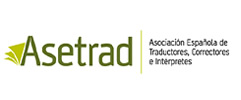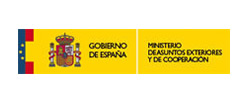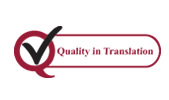CERTIFICATION, SIGNATURE AND STAMP
Is there a mandatory formula for the certification of sworn translations?
Paragraph 4 of Article 8 of the Order AEC/2125/2014, of November 6, states that sworn translators-interpreters shall use the “the formula given in Annex II, which shall state the language of origin, the language into which the text has been translated, the place and date of embodiment thereof. ” The formula is as follows:
Mr / Mrs ……………………………… (Full name), Sworn Translator-Interpreter of …………………………… (language) appointed by the Spanish Ministry of Foreign Affairs and Cooperation, certifies that the foregoing is true and complete translation into ………………….. ….. (target language) of a document written in ………………… (source language).
In …….. (place), on …………… (date).
Signature
Can any information be added to this certification?
Some sworn translators-interpreters add further information that is not in the said order, such as the number of pages comprising the translation, if the translation was made from an original document or, on the contrary, if a photocopy, certified copy, faxed documents, etc. was used.
What language should the certification be in on reverse translations?
According to paragraph 4 of Article 8 of Order AEC/2125/2014, the formula must necessarily state what is laid down in Annex II, “along with it may be included its translation into the language in question, provided that it is a verbatim translation of the original in Spanish.”
What information must appear on the stamp?
Article 8 of the Order AEC/2125/2014 specifies that the stamp should include, necessarily and exclusively, the name of the sworn translator-interpreter, the language or languages for which they have been qualified as sworn translator-interpreter and the number that the sworn translator-interpreter is registered with. Also, you should follow the model in Annex I of this Order.
Can you include an image, emblem or logo?
No, paragraph 2 of Article 8 of Order AEC/2125/2014 includes the only data that can appear in the stamp and it is stated that “no other mention or symbol” can be added.
Can you include an email address in the stamp?
No. With the publication of Order AEC/2125/2014, contact details shall no longer appear on the stamp; however, if the translator wishes, they may appear on the list of sworn translators-interpreters that the Oficina de Interpretación de Lenguas (Interpretation of Languages Office) of the Ministry of Foreign Affairs and Cooperation publishes periodically.
Should the signature and stamp appear on all pages?
Order AEC/2125/2014 only mentions that the signature must appear after the certification. As for the stamp, although it does not specify in what part of the translation it must appear, paragraph 5 of Article 8 states that it must be accompanied by a copy of the original “with all pages stamped and dated”, so it can be deduced that all pages of the translation must also be stamped.
PRESENTATION OF TRANSLATIONS
How should sworn translations be submitted?
There is no rule about it, so there is great heterogeneity in the practice of sworn translators-interpreters.
Is it mandatory to use state-stamped paper?
There is no rule on the use of any particular paper.
Should we attach a copy of the original?
Yes. Paragraph 5 of Article 8 of Order AEC/2125/2014 states that “for the purpose of verifying the authenticity of the original from which the translation was made, it must be accompanied by a copy thereof, with all its pages being stamped and dated.”
Should you copy the format of the original?
Some translators imitate the format of the original, while others choose to present their translations as plain text and filling the end of the lines with lines as notaries do. As there is no standard in this regard, each translator is free to choose the preferred option.
Is it possible or desirable to scan or reproduce seals, emblems or logos appearing in the original?
The use of such seals, emblems or logos is indeed regulated and the certified interpreter does not have the necessary permissions for use. Therefore, you should refrain from using them, and merely describe them if appropriate.
Can you provide a sworn translation by email or fax?
No, as certified translations must bear the original signature and stamp of the translator.
Can I submit photocopies of sworn translations?
In principle, the original documents must be submitted, although some agencies may accept collated copies.
FEES
Are there official rates for sworn translators-interpreters?
Article 12 of the Regulations of the Interpretation of Languages Office states that sworn translators-interpreters are free to set their fees.
How should sworn translations be charged?
Sworn translators-interpreters are free to choose the pricing unit, so there is no uniformity in practice. The most usual practice is to charge by word (some translators charge by the number of words in the original document; others find it more comfortable counting words in the target text). There are also sworn translators-interpreters who set their rates per page. Most translators also set a minimum rate.
Is it usual to make discounts for repeated words in sworn translations?
No. The original documents are usually on paper and do not allow direct use of computer-assisted translation, so it makes little sense to make discounts.
It is usual to make an exception when a client brings several identical documents in which only a few data change.
Is it usual to set surcharges?
Many sworn translators-interpreters charge an additional fee for urgency if they have to translate a number of words that is above their usual daily performance or if they have to work on holidays or weekends.
How should copies of sworn translations be charged?
Most often, a percentage of the price of the first translations is charged, although each translator is free to set what s/he deems most appropriate. Some translators apply a different rate depending on whether the copy is requested along with the translation or later.
REQUIREMENTS FOR PROFESSIONAL PRACTICE
The first requirement is obviously to be appointed Sworn Translator-Interpreter by the Ministry of Foreign Affairs and Cooperation.
Then sworn translators-interpreters must complete the formalities of verification of signature and stamp at the Government Delegation or Sub-delegation of their domicile, if residence is in Spain, or at the corresponding Consular Office if living abroad. There, translators shall record their personal information and record their stamp and signature so that it can be collated with the stamps and signatures placed on a translation, if necessary. Subsequently, sworn translators will be given the Sworn translator-interpreter title and license.
If the sworn translator-interpreter is to perform the professional activity as self-employed, s/he shall be registered with the Tax Authorities and with the Social Security.
COMPETENCIES
Can sworn translators-interpreters perform translations in both directions?
Yes, the Ministry of Foreign Affairs and Cooperation authorizes us to perform both direct and reverse translations. However, it is for the recipient organization requiring such translation to decide whether they accept the translation or not.
Can you certify translations made by third parties?
There is nothing to prevent it and some sworn translators-interpreters do this. However, keep in mind that the person certifying the translation is the one that assumes all responsibility therefore.
Can sworn translators-interpreters certify the authenticity of an original document?
No, the work of sworn translators-interpreters is limited to translating. It is not for us to decide on the misrepresentation or authenticity of the original.
Can a sworn translator-interpreter revise the translation of another sworn translator-interpreter?
Once signed and stamped, the translations of sworn translators-interpreters may only be reviewed by the Interpretation of Languages Office, and only if such revision is requested by the competent authorities. However, there is nothing preventing sworn translators-interpreters from requesting a colleague to revise before certifying.
Can you translate words written in other languages?
Sworn translators-interpreters can only translate to the language and from the language for which they are authorized. There is no specific legislation governing performance if words appear in a document in a language for which the sworn translator-interpreter is not authorized. Some choose to leave them in the original language if they feel it is information that does not affect the content or validity of the document. On the contrary, if it comes to substance, the option chosen by many sworn translators-interpreters is to go to a colleague appointed for that language, each translating the language for which they are authorized, and including certifications of both in the resulting translation.
Can you translate photocopies, faxes, electronic documents?
Yes. There is no rule preventing the translation of any type of document. Some sworn translators-interpreters specify in their certification if the translation was made from a photocopy, fax, electronic document, collated copy, mobile message, etc.
Can sworn translators-interpreters work outside their province?
Paragraph 2 of Article 9 of the Office of Interpretation of Languages Regulations states that the title enables you “for the exercise of the activity throughout the national territory”.
Where can I check if a sworn translator is duly accredited?
As set forth in Article 11 of the Regulations of the Interpretation of Languages Office of the Ministry of Foreign Affairs, approved by Royal Decree 2555/1977, on August 27, on a periodic basis and for information purposes, the Interpretation of Languages Office shall publish and maintain an updated list with the names of all sworn Translators-Interpreters that have been appointed by the Ministry of Foreign Affairs and Cooperation to that date. This list shall include the languages for which you have been enabled, the date of appointment, the form of access to the title and registration number as Sworn Translator-Interpreter. Sworn Translators-Interpretors shall inform through the means available for this purpose of their contact details and if they are active in their profession, and this will be stated for the record. The processing of such data shall comply with the provisions of Organic Law 15/1999, of December 13, on Protection of Personal Data.
- Request a quote
- Please contact us to get a free non-binding quote.

 Español
Español English
English



